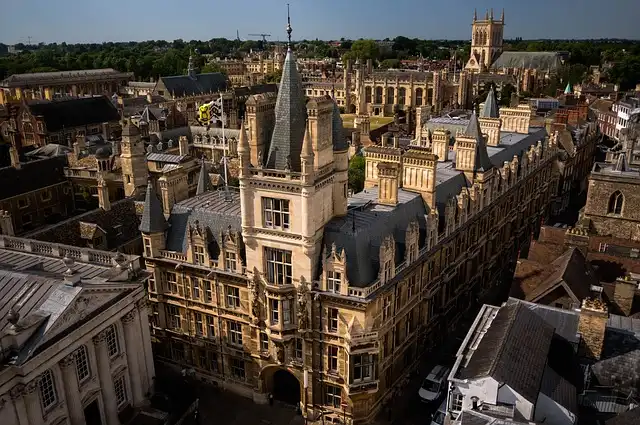Steve Biko’s murder exposed deep racism in how medicine was taught and practised in South Africa

In 1966, Steve Biko began studying medicine at the University of Natal in South Africa, the same year that the general assembly of the United Nations declared apartheid a crime against humanity.
In 1966, Steve Biko began examining medication at the University of Natal in South Africa, the very same year that the general setting up of the United Nations declared racism a criminal activity against humankind. As a boy, and a leading theorist, protestor and thinker, Biko made an indelible mark on the resistance versus white minority regulation and the racist system of racism.
Christa Kuljian does not work for, speak with, very own shares in or receive funding from any firm or organization that would take advantage of this short article, and has actually disclosed no relevant associations beyond their scholastic visit.
At a young age, Biko recognized colonial reasoning, racism and white preeminence and he knew exactly how harmful they were to culture and to people. In his book I Compose What I Like, which has actually served as an overview for future generations of lobbyists, he created:
Consequently, the college determined to perform an Interior Settlement Payment. But the process was flawed. As an example, it did not review the background of the collection of ancestral human skeletal systems, masks and casts that were developed from the 1920s with to the 1980s, some of which was gathered unethically. There was no testimonial of the troubling anthropological techniques utilized at Wits Medical College and the Division of Makeup as faculty and pupils conducted study journeys throughout the continent in the very same period.
The inner settlement commission was nonetheless an essential process. As an outcome of its job the college’s Faculty of Health and wellness Sciences currently lugs a plaque at its entryway specifying that it “declares its denial of bigotry and other offenses of human rights.”
Cost shared that in preparation for the entry, several white personnel believed that the college had used a liberal atmosphere and an “sanctuary of flexibility” to black team and pupils during apartheid. However he said, in meetings, this showed incorrect. Many Black staff and pupils really felt bitter and mad because they experienced exclusion, humiliation and injured by prejudiced techniques.
I discovered these problems in my book Darwin’s Hunch, in the 2023 Steve Biko Bioethics lecture, and in a paper. On the anniversary of Biko’s death, there is still a requirement to acknowledge and revisit this excruciating background of scientific racism to build a higher understanding of background, transparency and principles for the future.
In the late 1800s and the very first fifty percent of the 20th century, the principles of relative makeup, race typology and a pecking order of race grew among researchers, physical anthropologists, anatomists and doctors in Europe, Britain, the United States and South Africa. Because of this, scientists advertised troubling anthropological practices consisting of the underhanded collection of human skeletal systems and determining physical features without approval. These collections, initially gathered to show the inequality of races, remain to be held in your area and globally.
Submissions to the council were disregarded however Veriava, a medical doctor, continued. He was signed up with by various other doctors including Tim Wilson and Dumisani Mzamane. Phillip Tobias, that was dean of medication at the university at the time, joined in addition to professors Frances Ames and Trefor Jenkins.
Yet there is still more to be done. We require to remain to speak about the history of scientific bigotry, not only to comprehend today, yet likewise to make modifications to do far better in the future. We owe that to future generations, and to our forefathers, including Steve Biko.
Biko passed away complying with vicious beatings by the protection police. The cause of fatality– and the circumstances– were quelched by the South African federal government. As even more proof started to arise regarding the scenarios of his fatality it became clear that the medical profession was greatly implicated. Two doctors had actually been asked to analyze him after his whippings, and neither acted to have his wounds dealt with.
In the late 1970s and very early 1990s doctors at the College of Cape Town and the University of the Witwatersrand (Wits) saw the demand to develop neighborhood clinical values committees that would certainly have standing in the professors and offer recommendations to medical professionals. Jenkins was associated with developing program material concerning clinical values at Wits.
The security authorities drove Biko over 700km across the country to Pretoria where the safety and security authorities had its headquarters. Biko made the trip, naked in the rear of a van, where he was wounded even more. He passed away the next night, alone, in a health center.
As an outcome of international and residential pressure after Biko’s fatality, the South African government agreed to hold a public inquest later that year. Details of Biko’s fatality continued to be uncertain and the presiding magistrate refused to prosecute. Teacher Yosuf (Joe) Veriava, who is currently professor emeritus at the University of the Witwatersrand, was just one of individuals to require that the medical professionals and the South African Medical and Dental Council be held answerable.
Entries to the council were disregarded however Veriava, a medical physician, lingered.
The team took their instance to the Pretoria High Court– Veriava and others v. the South African Medical and Dental Council. After years of effort, to their shock, on 30 January 1985, the court bought the council to hold a formal disciplinary hearing for both medical professionals included and to pay the costs for the case.
Both physicians– Ivor Lang and Benjamin Tucker– were condemned. Lang received just a care and continued to practice for five even more years till he retired. Tucker was struck off the roll, however he issued a public apology and successfully applied to be renewed.
The council did not hold the doctors liable. In the late 1800s and the initial half of the 20th century, the concepts of comparative anatomy, race typology and a power structure of race thrived amongst scientists, physical anthropologists, anatomists and medical professionals in Europe, Britain, the United States and South Africa. As an outcome of international and domestic stress after Biko’s death, the South African government concurred to hold a public inquest later on that year. Professor Yosuf (Joe) Veriava, who is currently teacher emeritus at the University of the Witwatersrand, was one of the people to demand that the medical professionals and the South African Medical and Dental Council be held responsible.
It was the South African Medical and Dental Council’s duty to shield people from inappropriate medical conduct. The council did not hold the doctors liable. Instead, it did everything it can to attempt to cover the oversight and complicity of the two physicians.
Veriava once more played a role in 1997 when the University of the Witwatersrand Professors of Wellness Sciences was asked to make an entry to unique hearings on the health field held by the Fact and Settlement Payment. The commission was developed to reveal the truth about the civils rights infractions that had occurred under discrimination, from 1960 to 1994.
1 Christa Kuljian2 South African Medical
3 Steve Biko
« US claims white supremacists tried to use Telegram to spark race war, put out hit on senatorBeyond the Harris-Trump debate: How politicians use anti-immigrant rhetoric to mask systemic failures »
